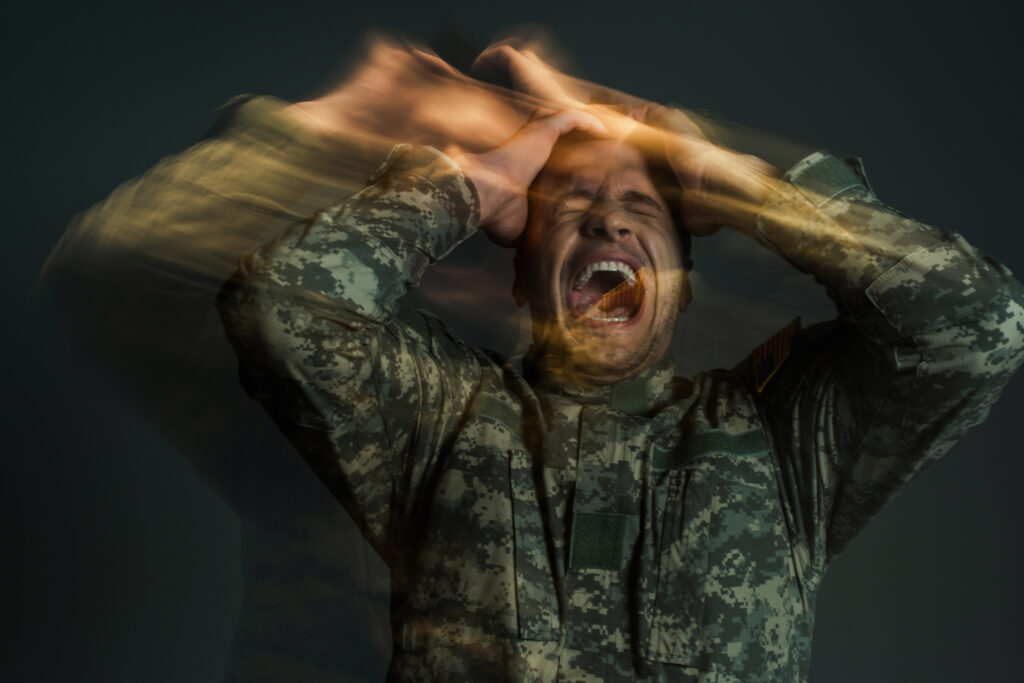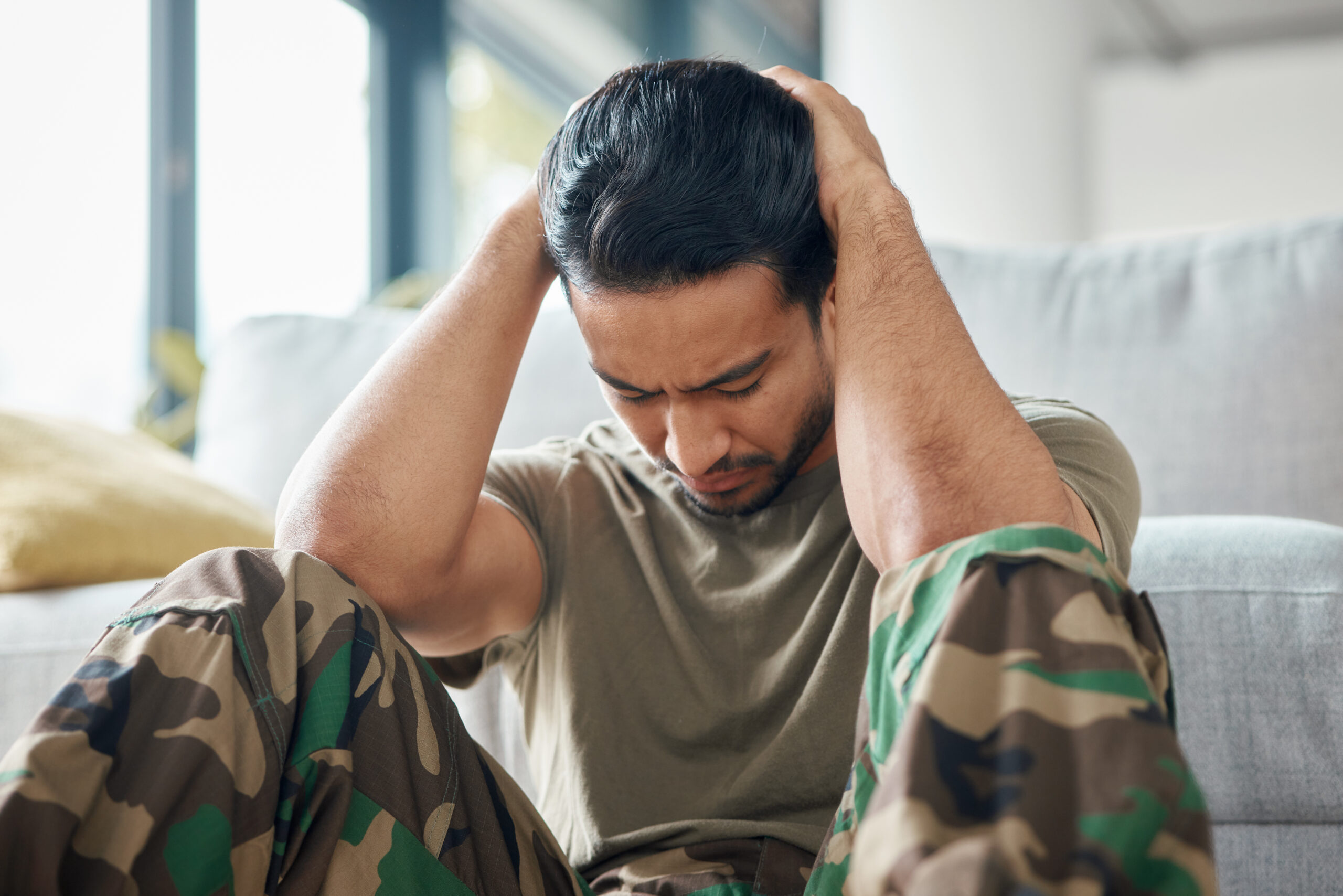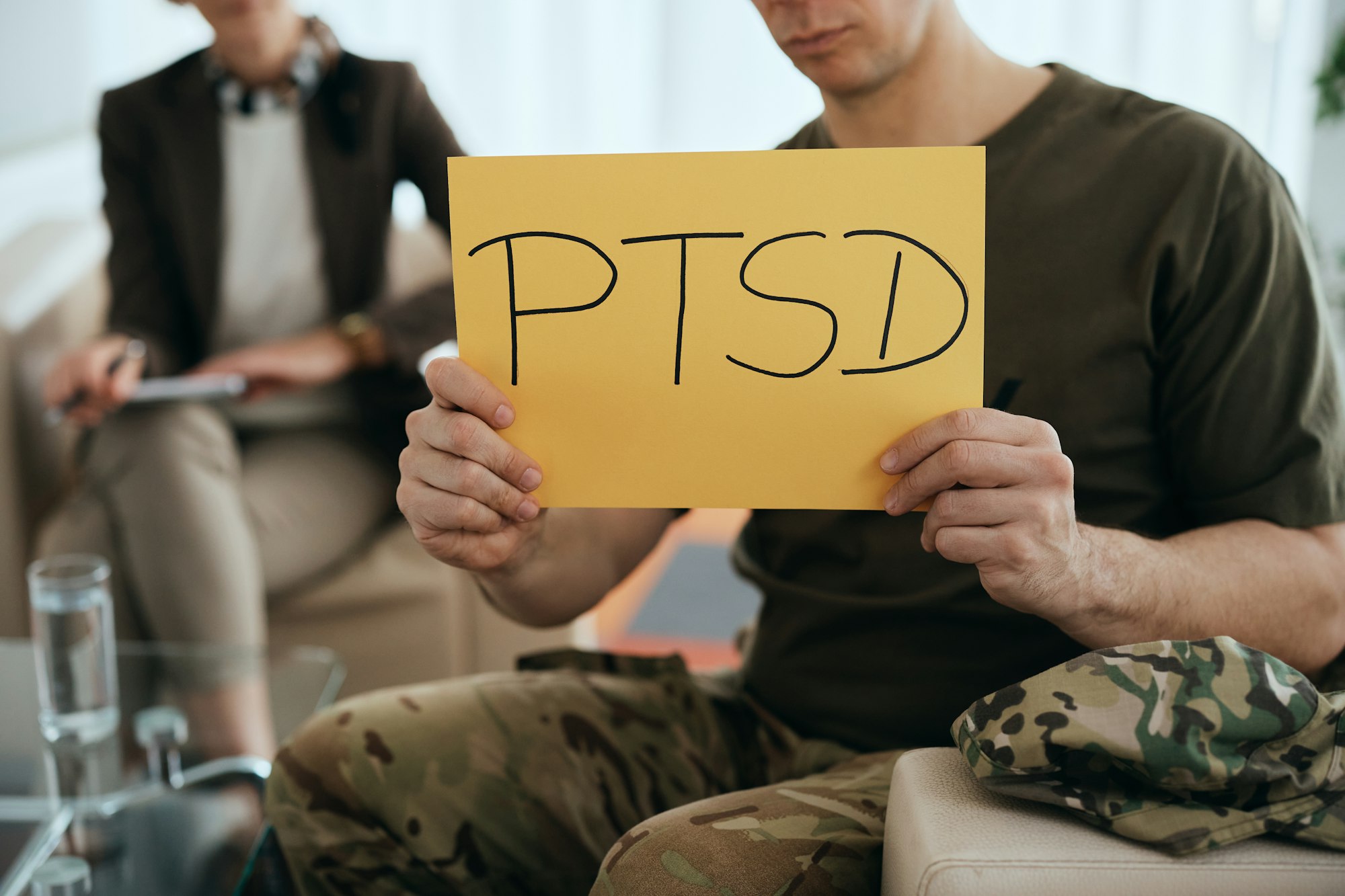For many veterans, trauma-related emotions like guilt and anger can become overwhelming, fueling symptoms of PTSD and substance use disorders.
These emotions not only contribute to the persistence of PTSD symptoms but can also stand in the way of meaningful recovery.
Integrated therapy approaches like those used at Valor Therapeutics provide veterans with powerful tools to address these emotions, offering a path to healing.
Understanding the Impact of Guilt and Anger
Combat veterans often carry a unique burden of guilt and anger from their experiences.
Guilt in PTSD, sometimes referred to as “moral injury,” occurs when veterans believe they could have acted differently or prevented certain traumatic events. Combat-related experiences, such as witnessing or participating in violent acts, can lead to a profound sense of guilt, which fuels PTSD symptoms (The Role of Posttraumatic Guilt and Anger, 2022).
This guilt may manifest as self-blame, self-doubt, or an overwhelming sense of responsibility, even when the circumstances were beyond their control.
Anger is another challenging emotion that many veterans struggle to control. Anger may be directed toward the self, others, or the circumstances that led to the traumatic event.
Research shows that unresolved anger can perpetuate PTSD symptoms, making recovery more difficult. Veterans with high levels of anger are also more likely to turn to substances as a coping mechanism, which often worsens their overall mental health (The Role of Posttraumatic Guilt and Anger, 2022).
In addition to fueling substance use, unaddressed anger can strain relationships, affect work performance, and further isolate veterans from social support.
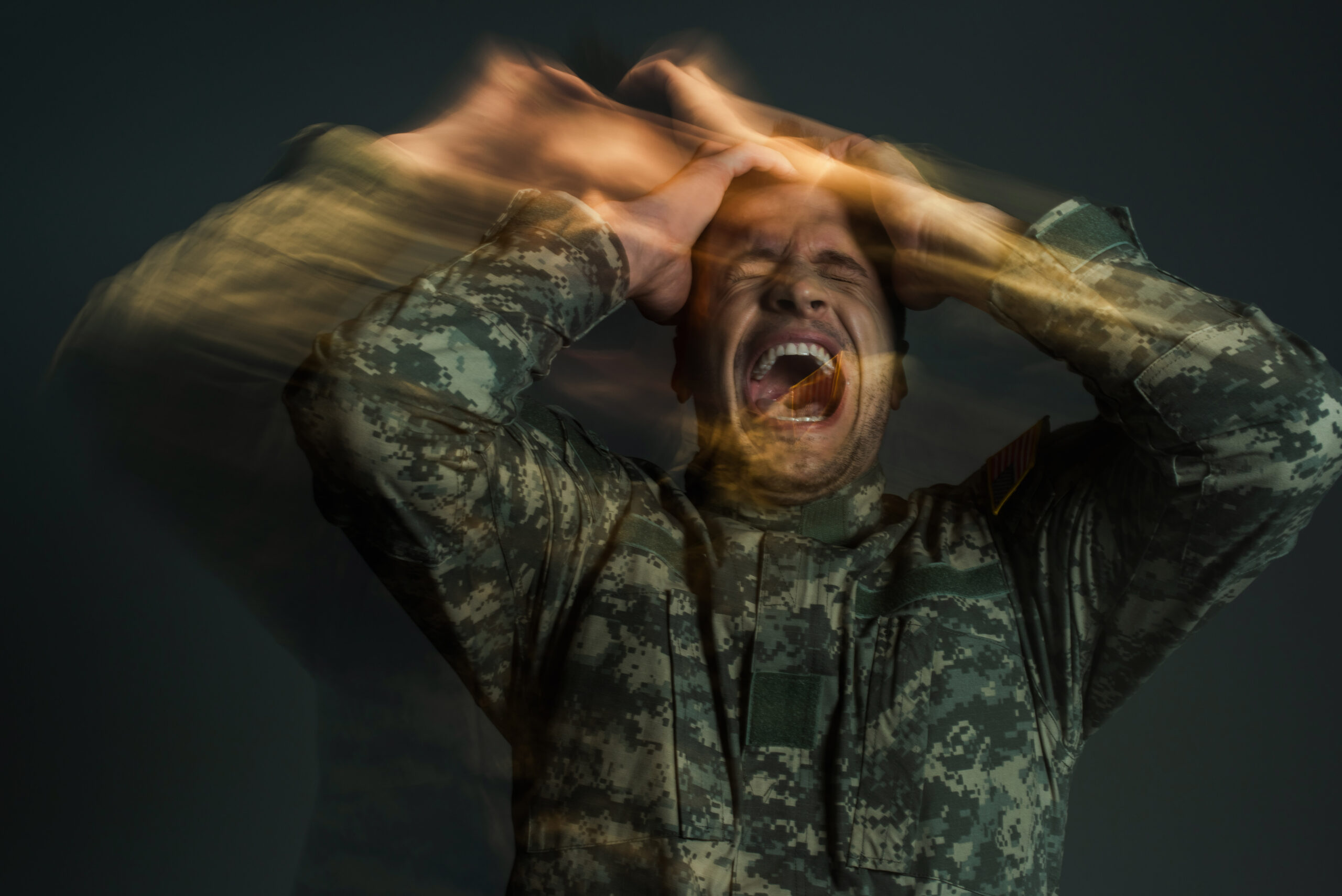
The Benefits of Integrated Therapy in Treating Guilt and Anger
Integrated therapies like the Concurrent Treatment of PTSD and SUD Using Prolonged Exposure (COPE) combine trauma-focused therapy with substance use interventions, targeting the core emotions that veterans struggle with—guilt and anger.
COPE helps veterans confront and process their trauma, reducing the intensity of these emotions over time. According to recent studies, integrated approaches like COPE are effective in reducing both PTSD symptoms and substance use in veterans by addressing guilt and anger directly (The Role of Posttraumatic Guilt and Anger, 2022).
Integrated therapy takes a comprehensive approach, acknowledging that emotions like guilt and anger don’t exist in isolation.
These therapies target not only the emotional symptoms but also the behaviors and thought patterns that accompany them, offering veterans a way to heal fully and sustainably.
By addressing the underlying emotional drivers of PTSD and SUD, integrated therapy provides veterans with a toolkit to manage these feelings constructively, reducing the likelihood of relapse and helping them build healthier relationships.
Valor Therapeutics’ Approach to Addressing Guilt and Anger
At Valor Therapeutics, a holistic, personalized approach supports veterans in processing trauma, overcoming guilt and anger, and rebuilding control in their lives.
Here’s how their methods make a difference:
- Art and Music Therapy: Valor uses creative arts to facilitate emotional expression, allowing veterans to process complex feelings such as guilt or anger in a non-verbal, therapeutic way. Engaging with art and music provides a safe space for self-reflection, helping veterans access and work through emotions they may find hard to articulate.
- Mindfulness and Yoga: Mindfulness practices, including yoga, help veterans reconnect with their bodies and emotions, reducing stress responses and improving emotional regulation. Valor’s mindfulness techniques encourage veterans to stay present and observe their emotions without judgment, which supports self-compassion and helps manage anger or guilt before it escalates.
- Soul Recovery and Community: Soul recovery sessions at Valor aim to help veterans reconnect with their sense of purpose, easing existential struggles often linked to guilt and anger. Additionally, Valor’s peer-supported environment fosters connection, allowing veterans to share experiences, learn from each other, and build a strong community. This supportive network reduces feelings of isolation and offers insight into managing emotional challenges.
The Power of Community and Peer Support
At Valor Therapeutics, community support is a central component of the healing journey.
For many veterans, anger and guilt create a barrier that isolates them from family, friends, and potential support systems. By creating a community where veterans can share openly, Valor provides a unique environment for healing.
Peer counseling and support groups allow veterans to connect with individuals who genuinely understand their experiences, which fosters a sense of belonging and acceptance that traditional therapy settings may not offer.
Shared experiences among veterans help reduce the stigma surrounding PTSD, SUD, and the emotions that come with them. Veterans often feel more comfortable sharing their stories with those who’ve faced similar hardships, which helps build trust and strengthen bonds.
These connections are essential for sustaining mental health beyond treatment, as veterans who feel connected are more likely to stay engaged in therapy and maintain their progress.
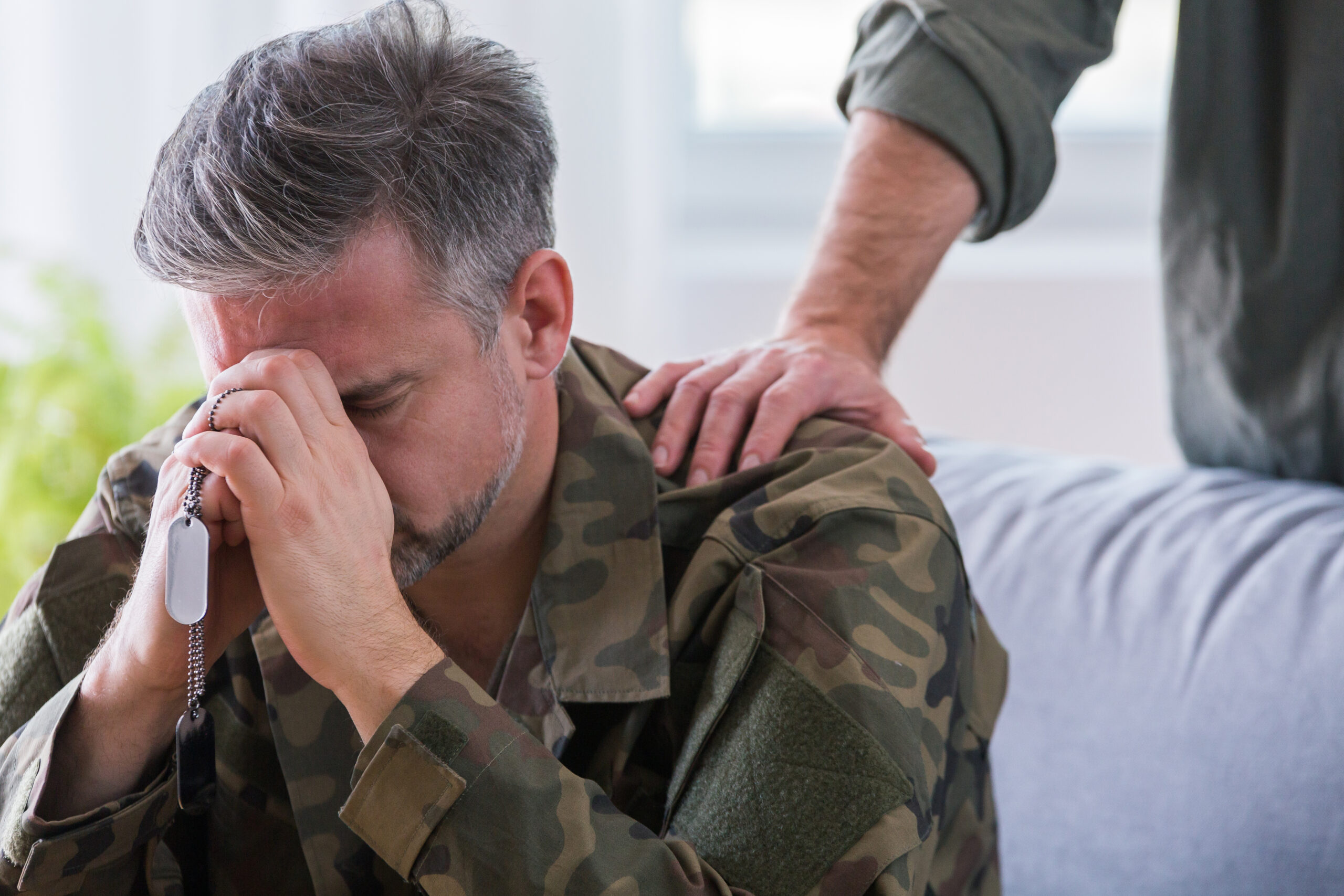
Why Addressing Guilt and Anger is Essential for Lasting Recovery
Emotions like guilt and anger are deeply personal, and their impact on veterans can be profound.
Left unaddressed, they can hinder progress, contribute to substance use, and perpetuate cycles of isolation and frustration. Valor Therapeutics’ integrated approach offers veterans an opportunity to heal these deep-seated emotions rather than suppressing them.
By focusing on emotional resilience and teaching veterans to manage guilt and anger, Valor empowers veterans to overcome these challenges and build healthier, more fulfilling lives.
For veterans, healing means finding peace with the past, gaining control over the present, and building hope for the future. Through integrated therapies, Valor Therapeutics provides the tools, community, and support veterans need to achieve this level of recovery, transforming lives one session at a time.
By addressing guilt and anger at their roots, Valor helps veterans move forward with strength, self-compassion, and the confidence to embrace a brighter tomorrow.
References
The Role of Posttraumatic Guilt and Anger in Integrated Treatment for PTSD and Co-Occurring Substance Use Disorders Among Primarily Male Veterans. (2022). Psychological Trauma: Theory, Research, Practice, and Policy, 15(8), 1293–1298. https://doi.org/10.1037/tra0001204

Melissa Henderson
Melissa Henderson is a dual-major student in Organizational Leadership and Psychology at Wright State University. With experience in nonprofit support and advocacy for veterans, she’s dedicated to creating positive, inclusive environments that empower individuals and promote well-being. Driven by her values of resilience and collaboration, Melissa is committed to leadership that makes a lasting impact on both people and systems.

